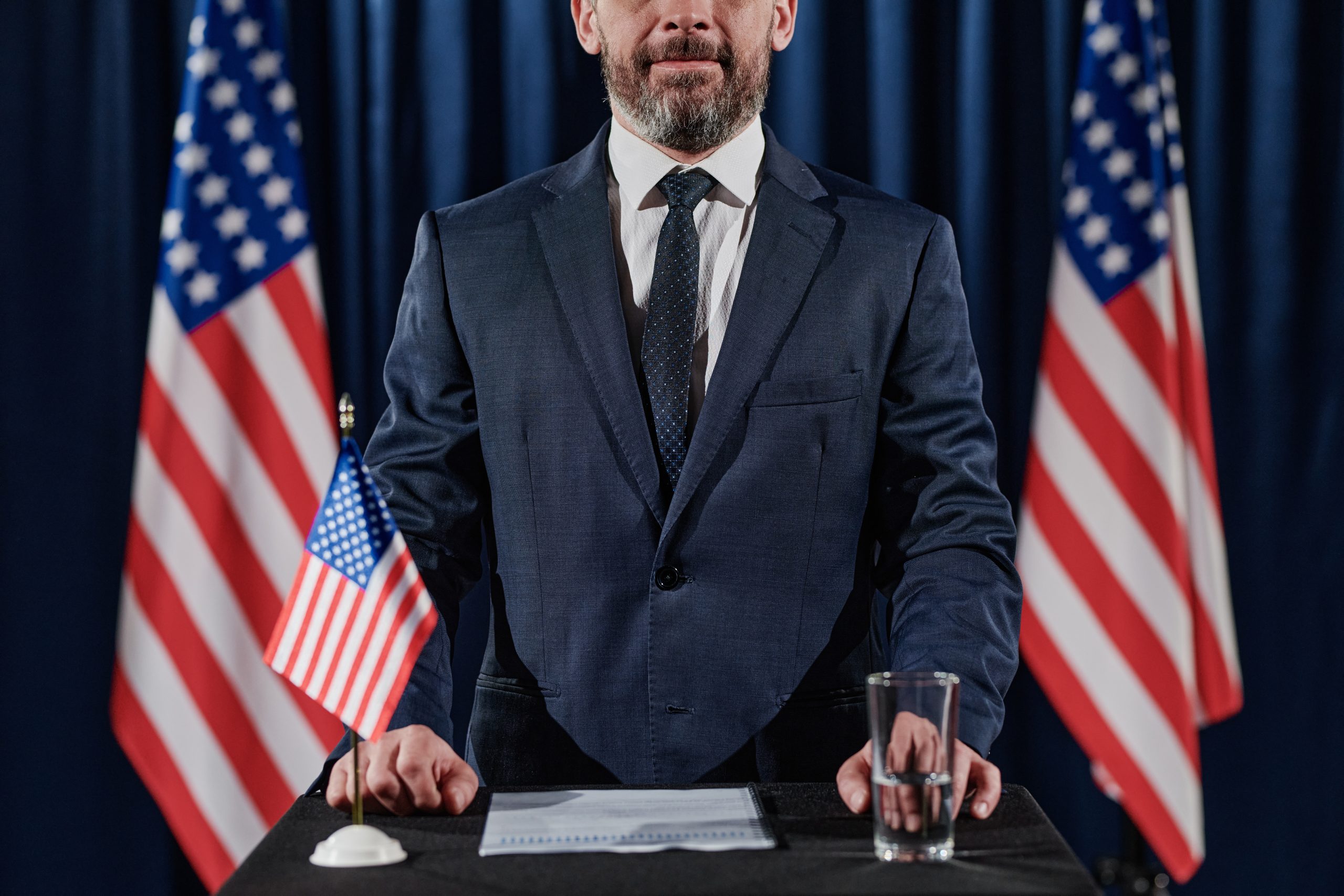Have you ever wondered what would happen if a war broke out during a U.S. presidential election? With the upcoming election and the current global pandemic, President Trump has raised the idea of postponing the election. But what does the law actually say about this? In this article, we will explore the constitutional authority, historical precedent, and the process for postponing a federal election. We will also discuss the potential judicial challenges and the impact of war on elections.
Constitutional Authority for Election Timing
The Constitution’s authority for election timing lies in Congress’ power to choose the date of the General Election. The Constitution explicitly states that the president and vice president shall hold office for a term of four years. While Article II Section 2 provides the president with narrow powers, none of them include changing the timing of the General Election. Instead, Congress has the authority to determine the timing of the election, as established by a federal statute enacted in 1845. It is important to note that no presidential election has been postponed since the enactment of this law.
In the event that there is a desire to postpone a federal election, Congress would need to amend the 1845 federal law and the president would have to sign it. However, the chances of this occurring are slim due to the political control of the House of Representatives, Senate, and Executive Branch. Even if such an agreement were reached, a judicial challenge would likely arise. A recent case in New York, where the Democratic presidential primary was canceled, provides insight into the potential ruling of the judicial branch. The court found that canceling the election violated the First and Fourteenth Amendments and emphasized the importance of having elections go forward.
Courts have consistently found irreparable injury in cases where voters allege constitutional violations of their right to vote. While emergency orders and regulations have been upheld by courts, a postponement of an election may not survive a judicial challenge. Courts draw a line when it comes to the right to vote and have a strong public interest in having elections proceed. Moreover, a postponement of the presidential election would likely run afoul of the 20th Amendment, which states that the presidential term ends on January 20th. It is worth noting that moving the date of a presidential election would not affect state and local elections.
Despite unpredictable times, the presidential election is expected to be held on November 3rd. Any new law changing the election dates would require public support and would still face potential judicial challenges. The right to vote is protected by the courts, making a postponement unlikely to survive legal scrutiny. Additionally, the 20th Amendment sets the end of the presidential term on January 20th, posing a challenge to changing the election date. State and local elections would not be affected by moving the federal general election.
Precedent of Election Postponement
To understand the precedent of election postponement, let’s consider previous instances where elections were held during challenging times. No presidential election has been postponed since Congress enacted the 1845 federal law. President Lincoln was reelected during the Civil War in 1864, and President Franklin Roosevelt was elected to a third and fourth term during World War II. Postponing a presidential election would break a 175-year precedent.
Historical implications:
- Holding elections during difficult times is an American tradition.
- Elections demonstrate the resilience of a people’s government.
- No incumbent president has ever lost reelection during a war.
Legal constraints:
- The U.S. Constitution grants explicit powers to each branch of government, with no provision for the president to change the timing of the General Election.
- Congress has the authority to choose the timing of the General Election through a federal statute enacted in 1845.
Public opinion:
- Expanded mail-in voting has ensured successful elections during wars.
- National security adviser Condoleezza Rice emphasized the importance of holding elections during challenging times.
Political consequences:
- Delaying the election would break the tradition of proceeding with a national vote during difficult times.
- No incumbent president has ever lost reelection during a war.
Court rulings:
- Courts have consistently found irreparable injury in cases where voters allege constitutional violations of their right to vote.
- A recent case in New York found that canceling an election violated the First and Fourteenth Amendments and emphasized the importance of having elections go forward.
Process for Postponing a Federal Election
Amendments to the federal law and the president’s signature are required to postpone a federal election. The process for postponing a federal election would involve amending legislation, which would need to be passed by Congress and signed by the president. However, the chances of this occurring are slim due to the political control of the House of Representatives, Senate, and Executive Branch. Even if Congress and the president agreed on postponing an election, a judicial challenge would likely arise. A recent case in New York, where the Democratic presidential primary was canceled, provides some insight into how the judicial branch would rule. The court found that canceling the election violated the First and Fourteenth Amendments and emphasized the importance of having elections go forward. Courts have consistently found irreparable injury in cases where voters allege constitutional violations of their right to vote. The right to vote is protected by the courts, making a postponement unlikely to survive legal scrutiny. Additionally, the 20th Amendment sets the end of the presidential term on Jan. 20, posing a challenge to changing the election date. Therefore, despite unpredictable times, the presidential election is expected to be held on Nov. 3.
Judicial Challenges to Postponing an Election
You may face a judicial challenge if you attempt to postpone an election during wartime. Courts have consistently found irreparable injury in cases where voters allege constitutional violations of their right to vote. Emergency orders and regulations have been upheld by courts, but a postponement of an election may not survive a judicial challenge. A recent case in New York, where the Democratic presidential primary was canceled, provides some insight into how the judicial branch would rule. The court found that canceling the election violated the First and Fourteenth Amendments and emphasized the importance of having elections go forward. A postponement of the presidential election would likely run afoul of the 20th Amendment, which states the presidential term ends on Jan. 20. Moving the date of a presidential election would involve several moving parts and would not affect state and local elections. In summary, attempting to postpone a presidential election during wartime would likely face significant legal hurdles, including challenges based on the First Amendment, Fourteenth Amendment, and the 20th Amendment.
Expectations for the Presidential Election
As we continue discussing the expectations for the presidential election, it is important to note that despite the unpredictable times, the election is expected to be held on Nov. 3. However, there are several factors that could impact the election process.
One key consideration is public support. Any change to the election date would require significant public support in order to be successful. Additionally, legal scrutiny would be applied to any attempts to postpone the election. The right to vote is protected by the courts, making a postponement unlikely to survive legal challenges.
Furthermore, the 20th Amendment poses a challenge to changing the election date. It states that the presidential term ends on Jan. 20, creating a strict timeline for the transfer of power. Moving the date of the election would involve several logistical challenges and would not affect state and local elections.
It is also worth considering the historical impact of war on elections. While war casts a long shadow over elections, there is a precedent of holding elections during difficult times. Past examples, such as President Lincoln’s election during the Civil War and President Roosevelt’s multiple terms during World War II, demonstrate the resilience of the electoral process.
Impact of War on Elections
War has a profound influence on elections. It significantly impacts the factors that influence voters and the structure of choice in elections. The role of military experiences becomes a significant factor in shaping public opinion and influencing voter decisions. During times of war, domestic politics also play a crucial role in shaping the political landscape. Here are three key points to consider:
- Factors influencing voters:
- The experiences of military personnel and their families can deeply influence the way people vote.
- The state of the economy and social issues also play a significant role in shaping voter decisions.
- The overall national security and foreign policy during wartime can sway voters towards certain candidates.
- Impact on choice structure:
- The presence of war can alter the priorities and concerns of voters, leading to a shift in the issues that candidates focus on during their campaigns.
- The emphasis on strong leadership and national security becomes more prominent during wartime.
- The ebb and flow of politics becomes more fluid and dynamic as the context of war shapes the political landscape.
- Domestic politics during war:
- The political environment becomes more polarized as differing viewpoints emerge on how to handle the war.
- Political parties may use the war as a platform to gain support or criticize the incumbent administration.
- The impact of war on elections extends beyond the presidential race and affects state and local elections as well.




